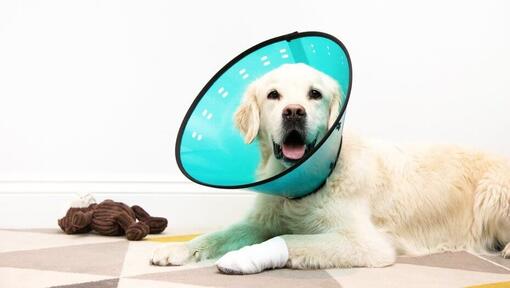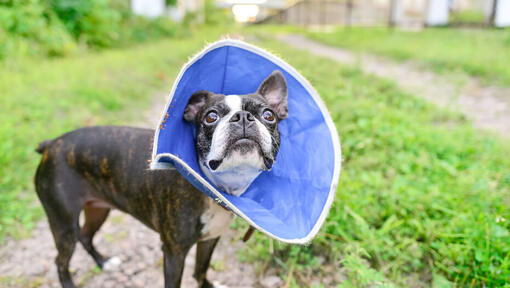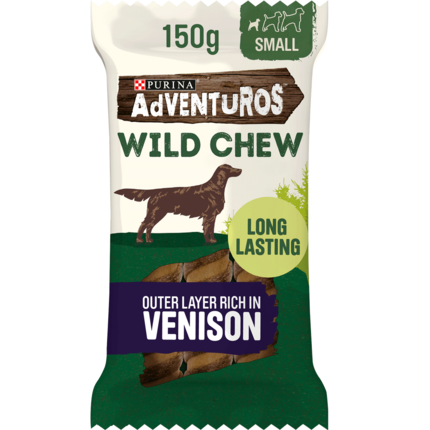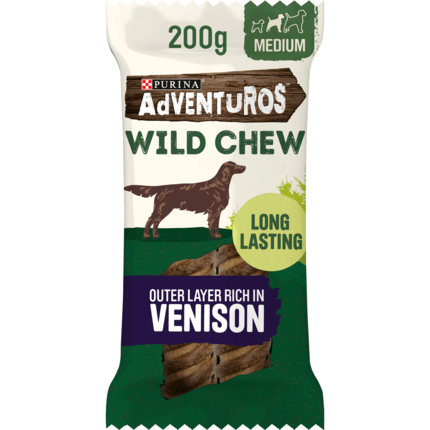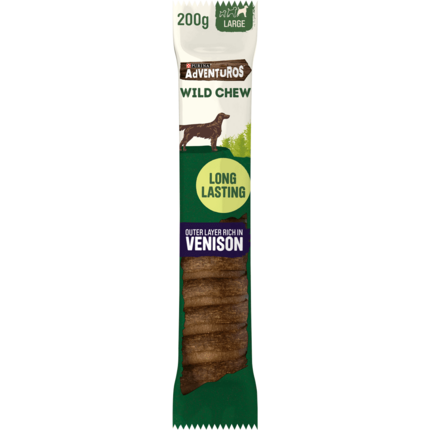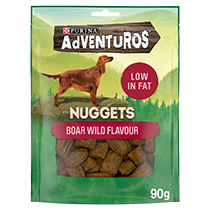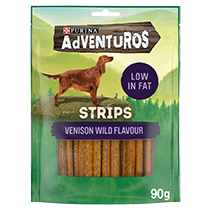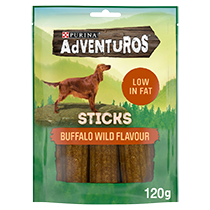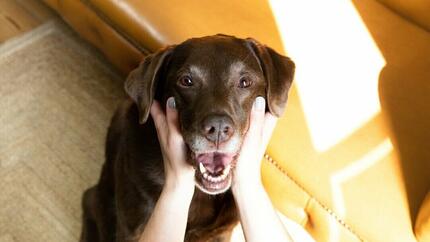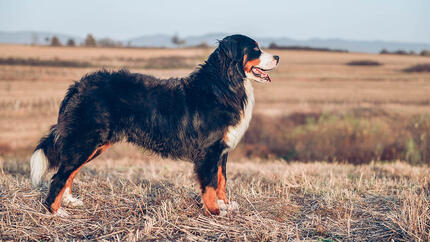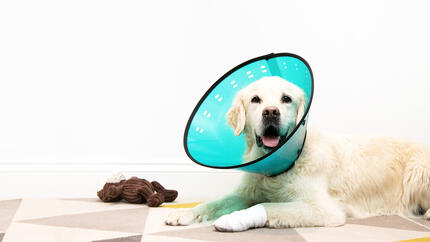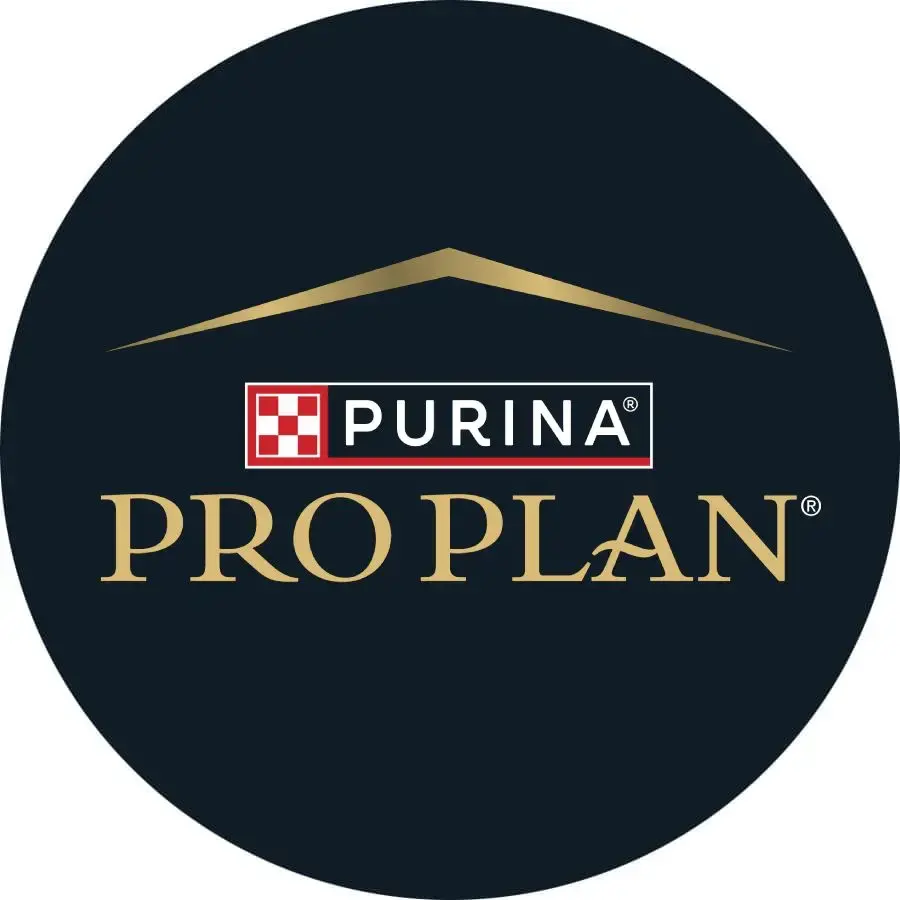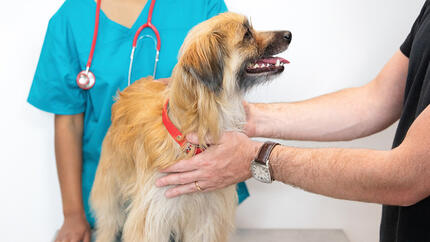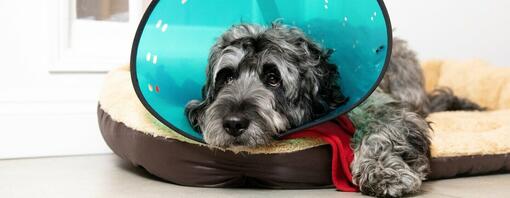
Most dogs have to wear one of those big, plastic cones at some point in their lives, but why do they actually need to wear them? Read our guide to find out why they're important for your dog and discover the best alternatives currently available.
It’s likely that your dog will have to wear a cone at some point in their life, whether it’s after they’ve been neutered or spayed or due to an injury. No dog enjoys wearing the hard plastic collar that resembles a lampshade and you may have even heard it referred to as ‘the cone of shame’.
The proper name for a dog cone is the Elizabethan collar, named due to its similarity to the high collars worn in Elizabethan times. But why do dogs wear cones? Keep reading to find out why it’s imperative that they wear one and the dog cone alternatives available on the market.
Why do dogs wear cones?
Dog cones are designed to stop your dog from licking or scratching a wound, surgical incision or any other irritation.
Dogs licking a wound is an instinctive response and many will constantly worry at it, causing further problems and possible infections as the wound will remain moist – which is the perfect breeding ground for bacteria.
It’s often necessary to create a protective barrier to stop your dog from being able to access their wound, so that they won’t obsessively lick and hinder the healing process and this is where a plastic cone comes into play. These dog cones extend a little past their nose and offer important protection while the wound heals. This means it’s extremely important for the cone to remain on until it’s fully healed.
Dog cone alternatives
Where the plastic cone is incredibly important and offers much needed protection, they’re not the most comfortable thing for dogs to wear. Although most dogs are able to go about their usual day-to-day activities, some will object and will actually refuse to eat or drink with it on, and in some cases may even get stuck around the house.
If you have a nervous dog, the cone may actually make them more anxious as they’ll feel as though they can’t do their usual activities. When this occurs it’s advisable that a dog cone alternative is found.
Soft collars
A soft collar resembles the shape of a plastic cone but they’re much more comfortable for your dog.
The soft fabric is less likely to cause irritation which is ideal for dogs with skin problems or if their skin is sensitive, and they’re more flexible so they’ll feel less restricted as well.
Due to their flexibility they’re best suited to less active dogs that aren’t likely to try and lick or chew too eagerly. Additionally, they will be unable to see through this kind of cone so these aren’t a good idea for nervous dogs who jump or spook easily.
Inflatable collars
An inflatable collar is a great dog cone alternative which looks just like a neck pillow. These are puffy and padded and are ideal for taking a break from a plastic cone, but are generally not a good idea for constant wear.
Your dog will have increased mobility and may still be able to get access to their wounds, so this type of collar should only be used on dogs with upper body injuries as they will still be able to access their lower body. It’s a good idea to supervise them at first to examine their range of mobility to see if an inflatable collar is suitable.
Neck collar
Where a neck collar may not look like the nicest, they’re actually a much comfier dog cone alternative. Made of flexible plastic and foam, your dog is less likely to feel restricted with this type of collar, therefore they’re best suited to the more nervous types. Better yet, they won’t get stuck in tight spaces or end up accidentally running into walls whilst wearing a neck collar.
Surgical recovery suit
For dogs who object to having anything around their neck whatsoever, a surgical recovery suit could be your best option. These are ideal if your dog has wounds on their body as they can be covered by the soft fabric of the suit, thus preventing them from obsessively licking and prolonging the healing process. They’re available in a large range of sizes and there are also fun colours and patterns on sale, so there’s something available for all dogs.
So now you know the answer to why dogs wear cones! If you have a dog that finds the plastic cone of shame simply unbearable, give some of our options a try and find a dog cone alternative to suit them.
Remember that it’s imperative that your dog wears the cone if they are given it by the vet, so that they don’t interfere with the healing process by constantly licking and worrying over their wounds.
Next, find out more about how to help your dog recover from an operation with our step-by-step guide.



